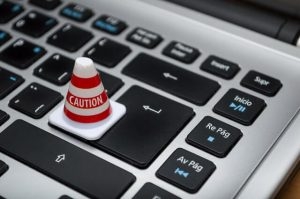Can CCTV Be Used as Evidence in a Disciplinary UK?
Organisations might think that they can just use CCTV evidence in disciplinary investigations without further thought, provided it shows the employee doing something they shouldn’t, or not doing the work they should be doing. However, it’s more complicated than that.
We would advise that before CCTV is used as evidence, you can satisfy yourself of all of the following things…
- You are transparent with employees about CCTV use (within your privacy notice, handbook or CCTV policy)
- How you’re using the CCTV evidence lines up with what your policy says; such as having the right to check CCTV if something is reported to you or if you happen to come across misconduct when viewing the CCTV for other acceptable purposes
- You are satisfied you have adequate signage in place, showing that CCTV operates in that area
- You are not being overly intrusive. For example; you’ve not sat there watching the CCTV specifically trying to find evidence (the same way it would be overly intrusive to just scroll aimlessly through someone’s emails, looking for misconduct to use against them). You’d need to have either been given a tip off that something had happened therefore you were within your rights to check the CCTV or you accidentally stumbled across it when looking for something else that wasn’t an intrusive use of the CCTV
- Where is your CCTV? If it’s in the toilets or somewhere obviously obscure, it’s not likely to be justified. Take care about having it in the break rooms as it’s likely to be seen as intrusive, as you can’t just have cameras in places which have a normal expectation of privacy.
What is “too intrusive” and Likely Regarded as Evidence You Shouldn’t Use?
- Watching CCTV to “check up” on staff without a particular need to do so – don’t go searching for wrongs
- Having CCTV in places which have a reasonable expectation of privacy
- Audio on CCTV – it’s usually not necessary to record audio (unless you have a particular need for the audio) therefore hearing employees moaning about the organisation amongst themselves whilst working or on a break, won’t be classed as misconduct
Covert Monitoring
You can in certain situations use CCTV recording in secret, without informing the employee. However, it will be a rarity that this is acceptable so you need to take care, and seek advice before doing so. You should be satisfied that there are grounds to suspect criminal activity or equivalent malpractice and that notifying individuals about its operation would prejudice its prevention or detection. It will be rare for covert monitoring to be justified and it should only be used in exceptional circumstances. The number of people involved in the investigation should be limited and it should be subject to a strict timeframe.
Can You Monitor Employees Emails?
Employers may, from time to time, feel it necessary to monitor employee’s work emails. Here are a few things to be aware of…
- Employers cannot monitor their employee’s electronic communications without giving adequate prior notice (in order to adequately protect the individual’s right to privacy) – i.e. have you got a privacy notice / monitoring policy in place informing employees that you monitor emails?
- An employer cannot reduce private social life in the workplace to zero; some personal use must be tolerated, i.e. even if the primary use of instant messaging or emails etc. is for work purposes, it should be expected that some communication will spill over into personal conversations, just as they do in face to face interactions
- Employers should not use exhaustive or automated monitoring methods (i.e. spyware) to look through employee’s browser history, workplace communications or in the search for finding any misuse (a witch hunt).
- Don’t use any methods that leave no trace of the monitoring (i.e. physically sitting at an employee’s computer and looking through private communications)
- Only use information obtained through monitoring for the purposes for which the monitoring was carried out unless the monitoring leads to the discovery of an activity that, as an employer, you could not reasonably be expected to ignore
- Keep the data secure and permanently delete when it’s no longer necessary to retain
- Undertake training and awareness of data protection for your managers responsible for conducting the monitoring & restricting access to others
- If emails are identified as or are clearly “personal”, do not open unless there is a real risk of serious harm to the organisation & where possible, inform the employee in advance that the content may be viewed
- Only go as far as necessary – i.e. is it possible to block websites rather than monitor internet usage? You need to be certain that there is no less intrusive way of achieving your ICT security or other purpose
- To keep things simple, remember that ultimately, if an employee takes advantage of their right to a social life at work or goes too far with private communications, you shouldn’t have to dig too deep or conduct any intrusive or excessive monitoring. If you are doing so then it is probably going to be looked at as a witch hunt
- Bear in mind the implied duty of trust and confidence that an employer has with their employee and therefore not doing anything underhand that would impede this
If the above principles aren’t adhered to when using CCTV or any other monitoring as evidence, then it could result in claims relating to the employment tribunals, data protection claims or a breach of the employee’s right to privacy under human rights law.
If you need further advice on this including updating the CCTV or monitoring section of your employee handbook please contact us on 033 33 215 005 or e-mail websiteenquiries@wirehouse-es.com
If you aren’t yet signed up for our GDPR service and need support putting policies or practices in place to ensure you can undertake monitoring effectively, or could do with some training on data protection, contact us on gdpradvice@wirehouse-es.com





